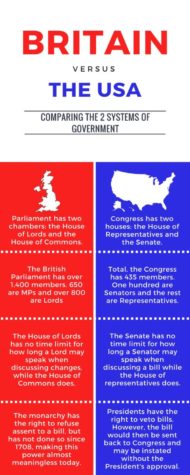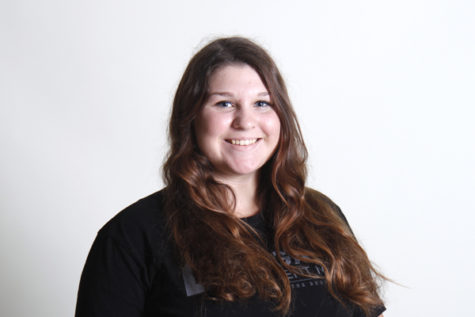Senior Carissa Chavarria sits in her AP Government class scrolling through her phone. She reads the final question on the Political Compass Test and hits submit to see where she landed on the spectrum. As expected, she’s an anarchist.
In a time when extreme partisanship runs rampant, people call for drastic measures – especially when it comes to who the President may be. Some claim the figurehead carries out God’s will while others call for impeachment. Chavarria stands closer to the latter side of the debate.
“I have a lot of reasons not to appreciate the government,” Chavarria said. “They don’t care about their citizens.”
The Constitution enumerates the position of the President, laying out his role as Commander in Chief and the duties he holds to the United States. It also mentions the ability of the other two branches of our government to check his power to ensure he doesn’t overstep his bounds as president. For this reason, government teacher Ms. Stephanie Gresham doesn’t see a need or a way to get rid of the position.
“You would have to throw out all three branches of government, the Constitution and basically everything that makes us the United States,” Ms. Gresham said. “There are all sorts of fail-safes, so to actually achieve that, you would have to undermine every portion of the federal government.”
However, what if we had never had a President? Ms. Gresham claims that eliminating the position would make the American government run in the same basic manner as the British one. The British people do not elect the Prime Minister. Instead, the parliament chooses a party leader to become Prime Minister. For this reason, prime ministers sometimes resign after their party loses control because they have very little power.

“They choose a majority party leader,” Ms. Gresham said. “Because they’re so much smaller, that works.”
On the other hand, students such as Chavarria see the removal of the Presidential office as an important step toward a truly democratic society. Chavarria dislikes the idea of a single person in power – instead preferring the idea of expanding the congressional branch.
“That way it’s more of the people’s choice in how we want to live,” Chavarria said. “It’s more of the people’s choice and less of a person we chose to make the choices.”
This method, she believes, would expand upon the democracy in American society and ensure that the government truly represented the people.
“We need to find a way to include more of the people’s perspective,” Chavarria said. “I don’t want to say by state, but maybe by region. People from different regions have different ideas of what they would need and not just one person’s ideas. It would be everybody’s.”
Ms. Gresham disagrees. She feels that the position of President ensures the country moves forward and focuses on bigger issues rather than bogging down on little things. Even if the title of President didn’t exist, she assumes somebody would play essentially the same role. Looking at the different types of government across the world, this makes sense. From a monarchy to a dictatorship to a democracy, all governments seem to keep a person at the forefront.
“Somebody would have to serve that role in some sort of capacity, especially when you get into foreign relationships, UN appearances, things like that,” Gresham said. “Even within congress you have the president of the Senate, you’ve got the speaker of the House, and those roles, even though they wouldn’t be called presidents, would basically ascend to the same sort of role.”
However, both Ms. Gresham and Chavarria agree on one thing. Something needs to change, and that change needs to better reflect the wants of the people. So while we do have a President, and few alternatives exist to replace the position, the system requires an update.
“There’s something wrong. Back in 2001, when this happened with the Bush-Gore election, we should have fixed it,” Ms. Gresham said. “The all-or-nothing thing for states is really where I think the flaw is. There are several states that don’t go all-or-nothing, and I think it represents their people better. I think we need to make some adjustments to our system.”




